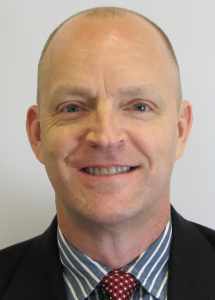
What single concept or skill do you feel is most important for your students to learn, and what is your approach to teaching it?
By far, our most important task is cultivating national-caliber professional standards in our students. We do this by editing all course assignments to those standards; publishing as much of the coursework locally, regionally, and nationally as we can; and requiring the students to work alongside reporters and editors at part-time internships throughout the school year. Our students learn how to respond to the editorial expectations of more than a dozen different professionals before they finish. In that sense, it’s less like graduate school and more like an on-the-job training program.
What specific skills-related experiences outside the classroom do you think are most important for students to have in their training?
First, our students must report on deadline and navigate all that entails: doing research, reading original literature, finding sources and outside comment, conducting interviews rapidly, writing efficiently and cleanly, answering questions from editors, finding art as needed, attending to final edits. Second, we want our students to learn how to recognize and pitch potential stories for different markets: online news, departments, features, profiles, Q&As, policy pieces, multimedia packages. Our students attend two or three national conferences to make connections, so networking is a major skill. It comes easily to some, while others have to work at it. Social media weave through all of this; we encourage students to become part of the online conversation and build up a following.
What have you learned in your own career that you most hope to convey to your students?
Many factors convince editors to hire writers or to assign work to them again and again, but I think these qualities are paramount: dependability, accuracy, clean copy, and creativity. On the latter point, I don’t want my students to feel that they must write brilliantly. Perfectionism has paralyzed me far too often. Rather, I try to convey that style and voice take time to emerge, and they really do evolve in delightful ways. It’s a career full of challenges, surprises, and deep rewards.
What textbooks and other reading do you use in your teaching?
My go-to volume on the craft of writing is On Writing Well by William Zinsser. I use it for both undergrads and grad students, and I don’t think anyone will surpass it. We’ve recently added The Science Writers’ Handbook from the SciLance freelance collective. It’s the best set of practical advice out there, and it’s so valuable for our clan because of the number of independent journalists we produce. A Field Guide for Science Writers from NASW has grown a bit long in the tooth, but many of its chapters are timeless and well crafted. We use Inside Reporting by Tim Harrower and The New York Times Reader: Science and Technology by Holly Stocking for our newswriting courses. The Art and Craft of Feature Writing by William Blundell is a fine narrative guide, even though it’s not science-specific. We assemble new readers each year to critique and analyze recent pieces from front-of-the-book magazine sections, online news, features, essays, profiles, and investigative reports. The Little Digital Video Book by Michael Rubin has been useful for our multimedia course. For inspiration I refer my students to Bird by Bird by Anne Lamott and The Courage to Write: How Writers Transcend Fear by Ralph Keyes. We all need reassurances about this path we’ve chosen.
What resources do you wish were more readily available for students?
Our community already is so supportive of up-and-coming science writers through mentoring, connections, and a wide range of internships. My two wish-list items are both financial. First, too many internships at high-level outlets pay lousy wages, especially in New York and Washington, DC. These positions should not be money-losing gigs for new graduates, but some of them are. I’ve kept advocating for higher rates through the NASW Education Committee and as program director, and we’ve seen modest progress—but not enough.
Second, there is one sole source of national scholarships for graduate training in science journalism: the Taylor/Blakeslee Fellowships from the Council for the Advancement of Science Writing, funded by the Brinson Foundation. We need more philanthropy to help make the graduate programs less financially taxing.
What is a science story that you admire, and why?
One of my favorite features is Rob Kunzig’s “Blood of the Vikings,” published in the December 1998 Discover. It’s an extraordinarily poetic profile of Kari Stefansson, who founded the controversial deCODE Genetics company in Iceland. The piece received the AAAS Science Journalism Award, and deservedly so. Rob weaved place, personality, science, and conflict into a vivid and unforgettable narrative. I’ve envied it ever since.


